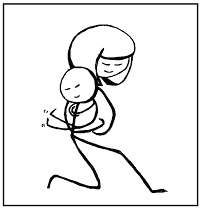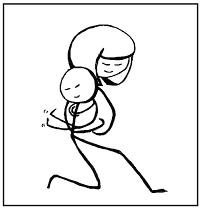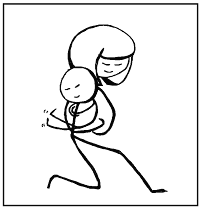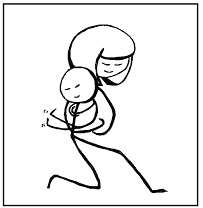
One of my go-to things to do when I am depressed about the state of the world is to make something in the kitchen, something, if possible, with our own garden ingredients. Not only does cooling force me to be mindful in the present moment, using ingredients we have grown also reminds me that canning salsa from the garden means no salsa shipped to me from Mexico this winter. Plus, it tastes a million times better! In addition, it reminds me of my grandma – which is nice too.
My partner and I had a friend who started dating someone with a very different diet from her. She asked us if we thought that mattered. Our initial answer was no, but then we thought about it a bit. Yes. Food was central to our relationship from the beginning: we were both vegetarian, we tried to buy local when we started living together, and now that we have a daughter we care what she eats and how she approaches food.
Furthermore, cooking together is some of our best family time. And our daughter is already helping! (which is sometimes less than helpful…). If we didn’t both care that we buy and freeze our fruit in season, it would be too big a job for one person. If we didn’t both want a million tomatoes in the freezer, I would give up!
I love that we enjoy food as a family, and I love that it is central to our togetherness. I hope as life continues to get busier and fuller, we can continue to stay grounded in food.



 RSS Feed
RSS Feed
